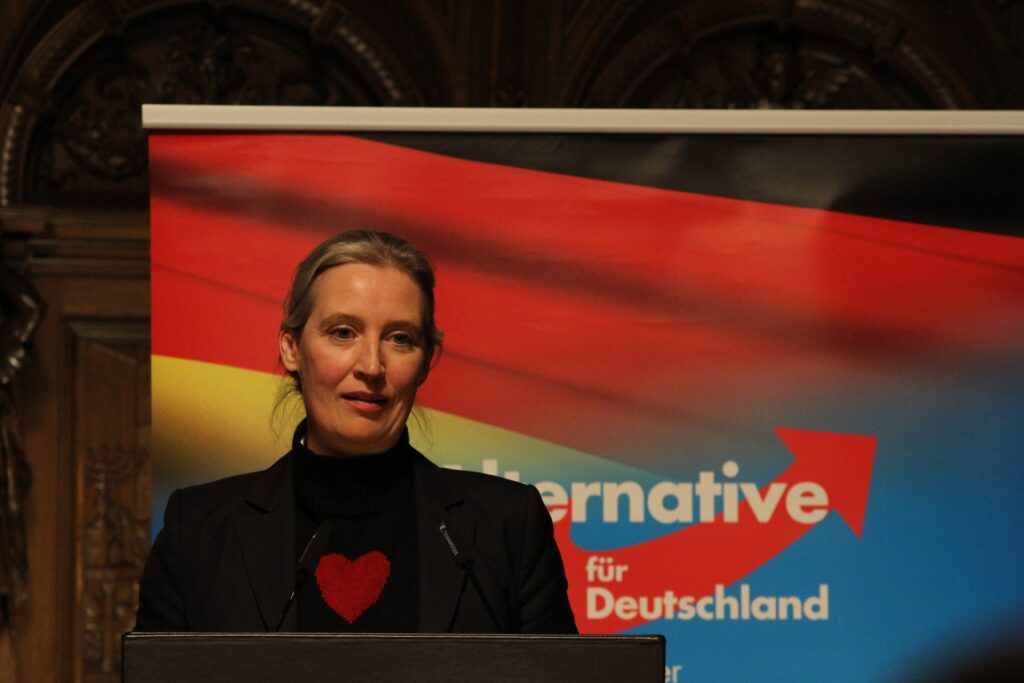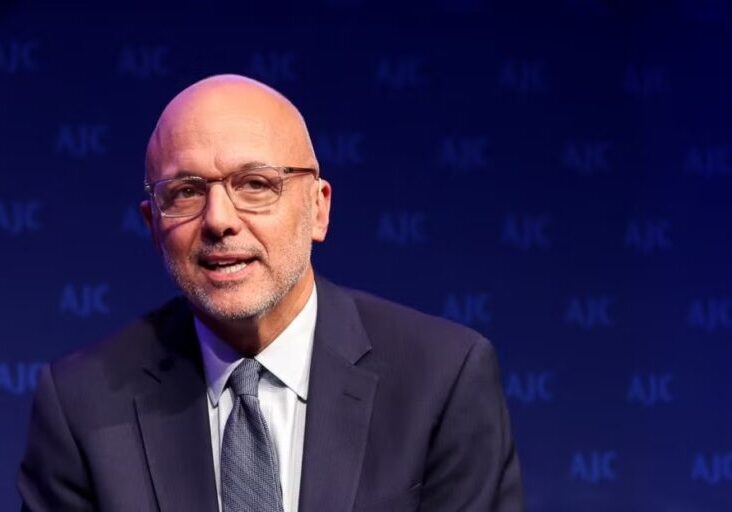Australia/Israel Review
Europa Europa: Going to extremes
Apr 1, 2025 | Alex Benjamin

“The world works better when the US and the EU stand together,” then-British PM Tony Blair said in 2002.
Those words, to my British-born ears, sound as distant in memory as paying in shillings.
Today, from Brussels, the Transatlantic gap feels unfathomably wide. Ukraine, Russia, tariffs, bombastic rhetoric on migrants, the list of rifts goes on. Europe is scrambling to find answers to an American president who cares little about how he is perceived abroad, much less about the established American and European-led international system that has existed for the past 80 years.
Nowhere was this more evident than in the remarks of Vice President JD Vance in Munich, where he lambasted European governments for, as he saw it, retreating from their values and ignoring voter concerns on migration and free speech. Vance’s speech went down very badly. It was, even for a Trump cheerleader, extraordinarily poorly judged.
The irony of the venue – Munich – was not lost on the participants being hectored about Ukraine, given the famous “I have in my hand a piece of paper” promising “peace for our time” remarks by Chamberlain in 1938, even as the Czechs were thrown under the Nazi bus.
Then we have Trump Administration Department of Government Efficiency head Elon Musk’s comments: “Move beyond Nazi guilt,” he exhorted the German population, before adding that the far-right Alternative für Deutschland (AfD) party represented “Germany’s last hope”.
After the German election on February 23, Musk called Alice Weidel, the co-leader of the AfD, to congratulate her on the party’s performance after it doubled its support from the last election.
The cosying up by elements of the Trump Administration to the European far right has really rankled the European mainstream. The vast majority of European governments are trying to hold back the tide of populism, building cordons sanitaires in parliaments and assemblies across the continent to exclude these extremist parties from government posts and decision-making. This, of course, plays into the populist hands and reinforces their talking points about elite domination and democratic deficits. But nobody wants to risk being the modern equivalent of Paul von Hindenburg – who inadvertently facilitated Hitler’s rise to power.
The Trump-led Republican Party is today dominated by populists who have made it to the top of the heap. They have railed against the mainstream media and elites and tilted at liberal windmills incessantly – sometimes with some factual basis, but often not. Little wonder, then, that they find common cause with European far-right populists like Weidel, France’s Le Pen and Hungary’s Orban.
This brings us to a very thorny issue for Jewish communities here in Europe.
Many Jewish communities also have cordons sanitaires of their own. The French CRIF and Germany’s Zentralrat, the umbrella organisations for their respective countries, are a case in point, refusing to engage with France’s Rassemblement National (“National Rally”, or RN) or the AfD. There was therefore much gnashing of teeth in some European Jewish quarters when Gideon Saar, Israel’s Foreign Minister, announced he was opening dialogue with the RN, the Swedish Democrats and Abascal’s Vox in Spain.
Adding insult to injury, Israel’s Minister for Diaspora Affairs Amichai Chikli invited Le Pen’s deputy Jordan Bardella – and some other right-wing populists from Spain, Sweden and Hungary – to Jerusalem for a major antisemitism conference in late March.
The rationale here is simple from an Israeli perspective: most mainstream European parties have been ambiguous at best about Israel post-October 7. Meanwhile, the far right and populists have been unequivocal in both their support of Israel, and in their revulsion at the pro-Hamas protests on Europe’s streets.
Decision time is therefore drawing closer for European Jewry. As populists get ever closer to the levers of power, we are actively debating whether to remain on the outside or seek a place inside the proverbial “tent”.
I was in Germany recently for a major conference of police chiefs. Sitting on one panel, I was amazed by the number of questions from the floor to the German panellists about the inexorable rise of the AfD. Yet, given the German experience of National Socialism within living memory, such an obsessive focus is completely understandable.
Then it was my turn to tell them what I thought. I told them that, when I go to sleep at night, I’m not overly worried about the far right. It’s people like far-left French politician Jean-Luc Mélenchon and his fellow travellers who keep me up at night.
The far right are trying to wash themselves clean. They must not be allowed to conceal their ugly roots, but at least they are trying to distance themselves from them. Meanwhile, the far left are happily rolling in the anti-Zionist and antisemitic mud, yet still appear to come up smelling of roses. The debate over populism and the far right is an important one, but it shouldn’t come at the expense of identifying where the real problem lies for European Jewry. And that’s on the other end of the spectrum.
Tags: Europe, Far Right, International Jewry






